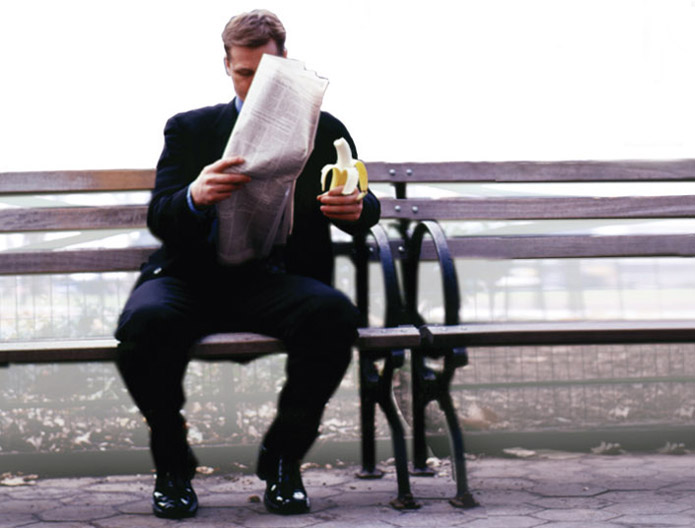Book Review: Our Inner Ape
 I just finished Frans de Waal's Our Inner Ape, a pop science book about chimpanzees, bonobos, and to some extent people. Dr. de Waal is a primatologist who studies the social interactions of these apes (the first two, not people), and his book compares and constrasts their behaviors in an effort to figure out where we fit in. He covers family relationships, power in troops, sex, violence, and kindness. At the end of the book, he specifically talks about what we, as close relatives of bonobos and chimps, can learn about ourselves from studying them. He concludes that we are both more like chimps and bonobos than we typically think we are, yet are more different (particularly from chimps) than the typical cynical view. Chimps are patriarchical, fight a lot, and comparing ourselves with them seems to suggest that the "law of the jungle" is in fact our nature. By contrast, bonobos are matriarchical, have promiscuous sex, and seem like quite a contrast to our view of ourselves. We can be both more violent towards each other than chimps, and more charitable to each other than bonobos.
I just finished Frans de Waal's Our Inner Ape, a pop science book about chimpanzees, bonobos, and to some extent people. Dr. de Waal is a primatologist who studies the social interactions of these apes (the first two, not people), and his book compares and constrasts their behaviors in an effort to figure out where we fit in. He covers family relationships, power in troops, sex, violence, and kindness. At the end of the book, he specifically talks about what we, as close relatives of bonobos and chimps, can learn about ourselves from studying them. He concludes that we are both more like chimps and bonobos than we typically think we are, yet are more different (particularly from chimps) than the typical cynical view. Chimps are patriarchical, fight a lot, and comparing ourselves with them seems to suggest that the "law of the jungle" is in fact our nature. By contrast, bonobos are matriarchical, have promiscuous sex, and seem like quite a contrast to our view of ourselves. We can be both more violent towards each other than chimps, and more charitable to each other than bonobos.Dr. de Waal does an impressive and entertaining job at describing the remarkable intelligence and very familiar social relationships these apes have, extending our understanding of their natures well beyond the one-sentence summaries I just stated. For example, and to tie in the food theme of this blog, he spends quite a bit of time talking about just how kind chimps and bonobos are to each other. (And reminding us of how social we are as a species!) Chimps hunt (for monkeys, mostly) in groups, and will share the proceeds of a hunt with other hunters as well as other members of their troop. They don't have to; a large male chimp is plenty big enough to hoard a monkey for himself and defend it from other chimps, but the fact is that chimps share in very familiar ways. Here's how de Waal talks about the adaptive nature of sharing:
Food sharing likely started as an incentive for hunters to hunt another day: there can't be joint hunting without joint payoffs.In other words, the remarkable level of reciprocity seen in humans and only a few other animals probably evolved as proto-humans became effective hunters of large game. If we had been vegetarians, like gorillas, we probably wouldn't be as social, or as nice to each other, as we are. I think this is quite a remarkable and thought-provoking conclusion.
...(It is unlikely) that vegetables played any role in the evolution of food sharing. The leaves and fruits that primates collect in the forest are too abundant and too small to share. Sharing makes sense only in relation to highly prized food that is hard to obtain and comes in amounts too large for a single individual. What is the centerpiece when people gather around the dinner table? The turkey at Thanksgiving, the pig turning on the spit, or the salad bowl? Sharing goes back to our hunting days, which explains why it is rare in other primates. The three primates best at public sharing--that is sharing outside the family--are humans, chimpanzees, and capuchin monkeys. All three love meat, they hunt in groups, and they share even among adult males, which makes sense given that males do most of the hunting.
If a taste for meat is indeed at the root of sharing, it is hard to escape the conclusion that human morality is steeped in blood. When we give money to begging strangers, ship food to starving masses, or vote for measures that benefit the poor, we follow impulses shaped since our ancestors first gathered around a meat possessor.
I very much enjoyed this book, in particular its anecdotes about apes in zoos being clever and helpful to people, and give it four out of four lamb chops.




Labels: science






0 Comments:
Post a Comment
Subscribe to Post Comments [Atom]
<< Home